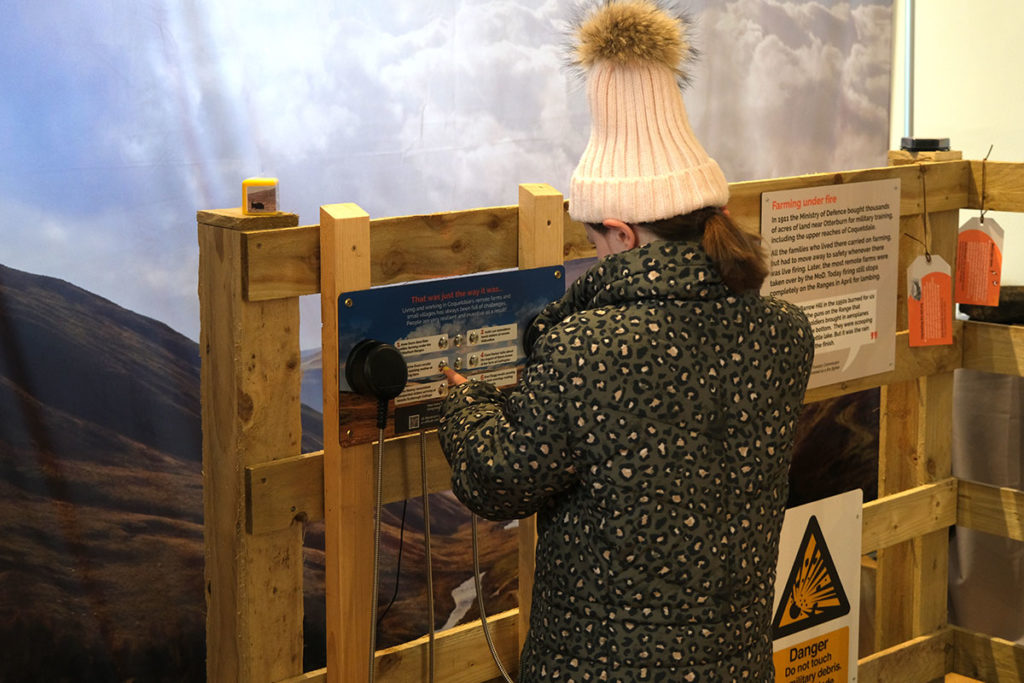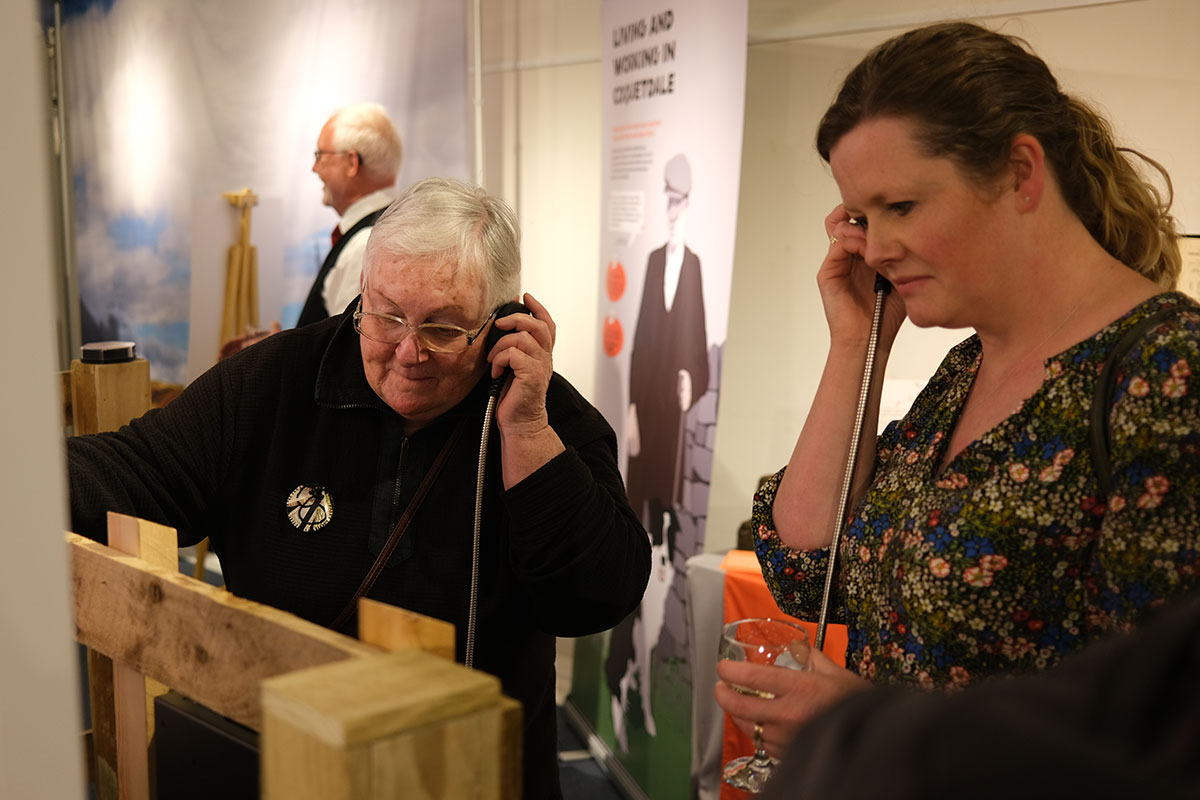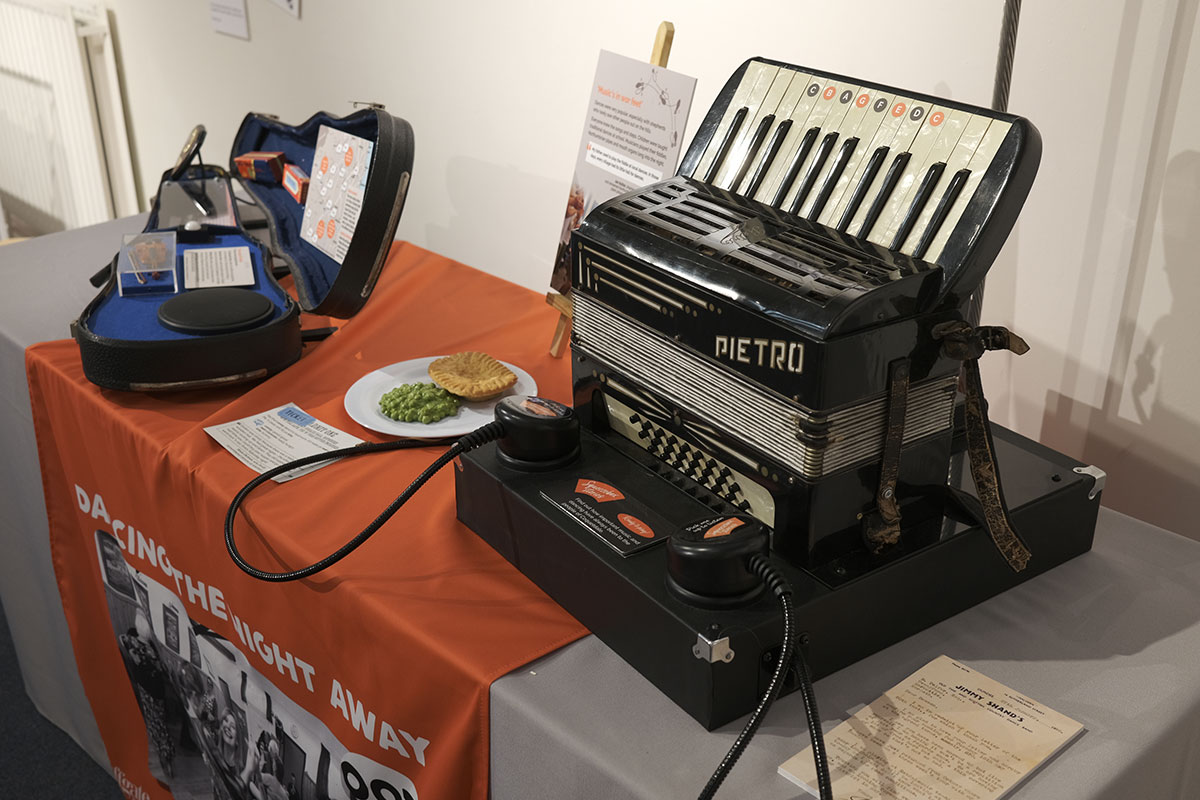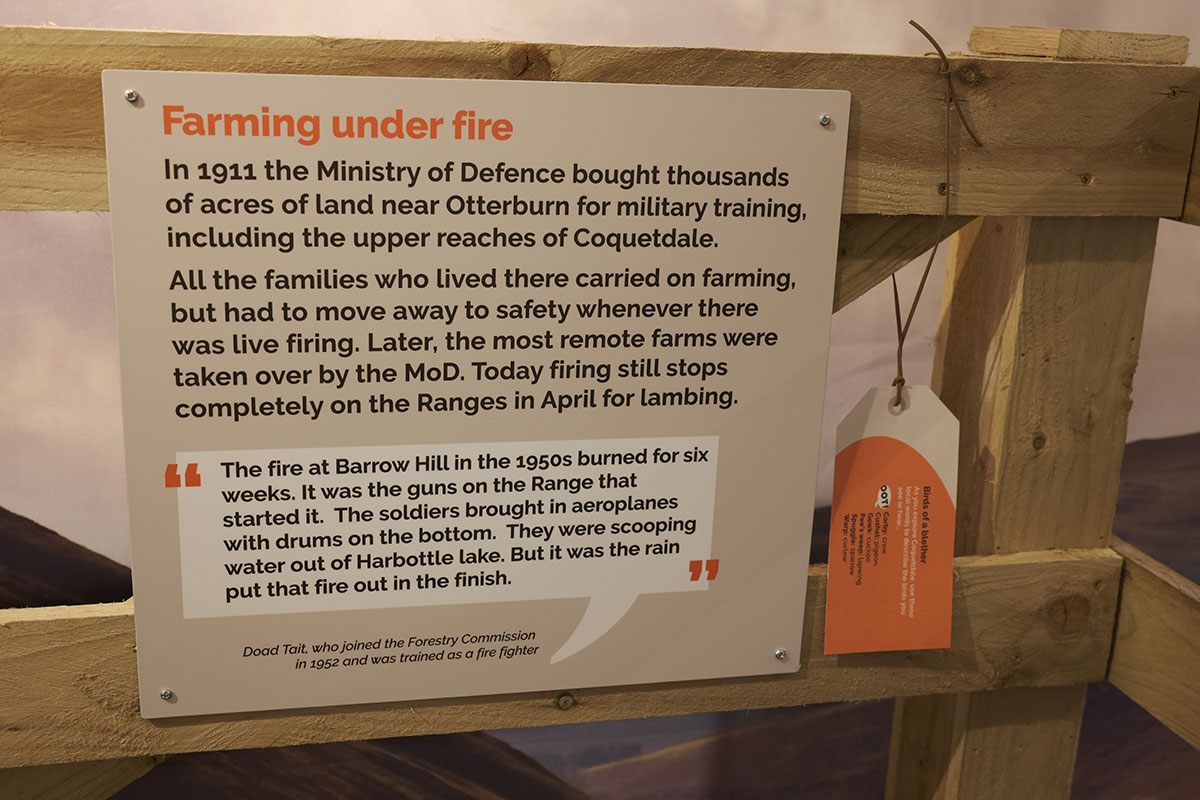Living and working in Coquetdale
Most families in the valley have made their living from farming, and many still do.
Other traditional upland jobs and skills have disappeared over the years. Local people’s lives and work changed dramatically when better roads, mains water, reliable electricity and new technologies reached remote Coquetdale.
‘When you’ve lived through it, you don’t think about it, because machinery has transformed lives and made lots of things much easier. But it’s made life for a lot of people very lonely. Some of the shepherds up in the valley won’t see people all week.’
Julia Stott, who farms with her husband at Elilaw.

Scroll down for more content from the exhibition
What’s your story?
What was your first job?
What did you do at work, and how did you get there each day?
A bit of blether
On a night, will ye fit ya peats and make a rickle or cut cloots for a proggy?
Farming under fire
In 1911 the Ministry of Defence bought thousands of acres of land near Otterburn for military training, including the upper reaches of Coquetdale.
All the families who lived there carried on farming, but had to move away to safety whenever there was live firing. Later, the most remote farms were taken over by the MoD. Today firing still stops completely on the Ranges in April for lambing.
‘The fire at Barrow Hill in the 1950s burned for six weeks. It was the guns on the Range that started it. The soldiers brought in aeroplanes with drums on the bottom. They were scooping water out of Harbottle lake. But it was the rain put that fire out in the finish.’
Doad Tait, who joined the Forestry Commission in 1952 and was trained as a fire fighter.
Life in the Valley
To listen to these stories, click the play button
Click here for text versions of the audio






